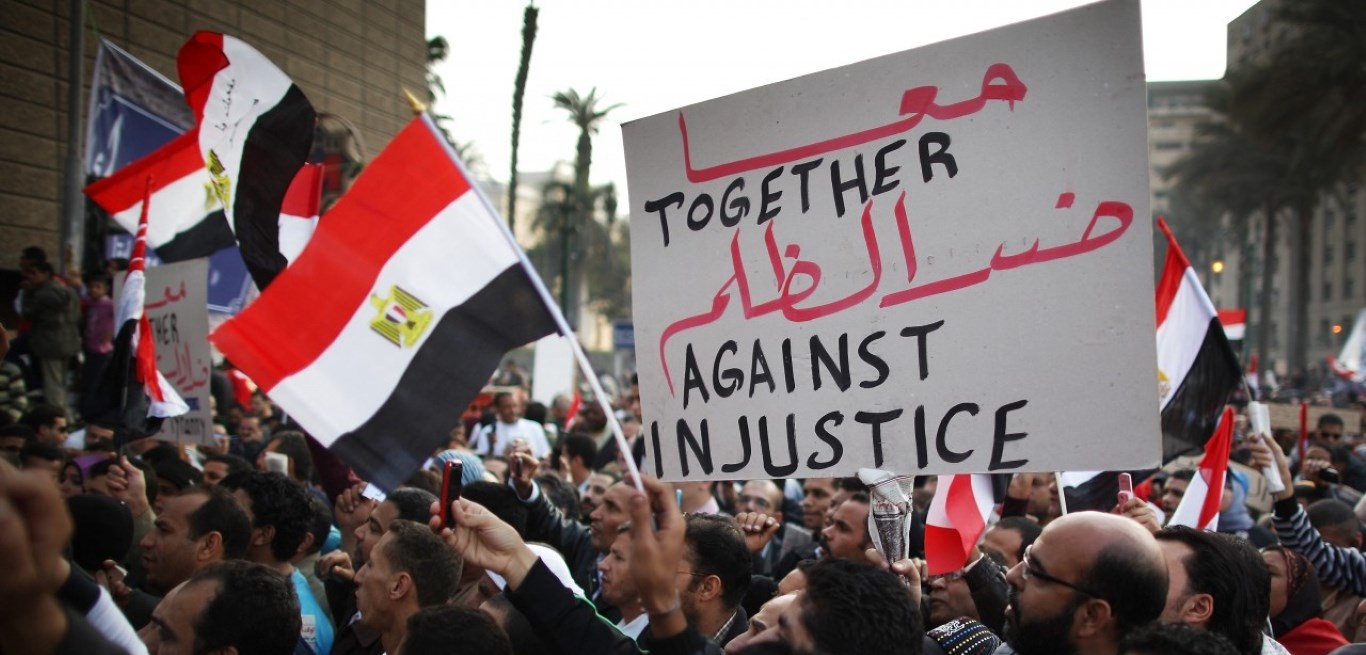Egypt regulates social media
July 19, 2018 | Expert Insights

Egypt’s parliament has passed a law giving the state powers to block social media accounts and penalize journalists held to be publishing fake news.
Background
The Arab Spring, beginning in December 2010 in Tunisia, was a series of unprecedented mass demonstrations against poverty, corruption, and political repression. The protests broke out in several Arab countries as a chain reaction challenged the authority of some of the most entrenched regimes in the Middle East and North Africa. Similarly in Egypt, in 2011 a popular uprising forced one of the region’s longest-serving and most influential leaders, Pres. Ḥosnī Mubārak, from power.
On January 25, 2011, thousands poured into Tahrir Square, the symbolic heart of Cairo. Social media is said to have played a crucial role in the unrest in Egypt, with many of the protests organised through Facebook. The term Arab Spring became interchangeable with “Twitter uprising” or “Facebook revolution”, as global media tried to make sense of what was going on. The online revolutionary spirit of Egyptians was infectious for those watching from afar. According to the Project on Information Technology and Political Islam the number of tweets posted about Egypt – many using #Jan25 in homage – jumped from 2,300 to 230,000 per day the week before Mubarak stepped down on the 11 February.
The most popular social media platform in Egypt is Facebook , it has as 59.66% of users. YouTube and Twitter follow this with 33.39% and 4.9% users respectively. According to a new research, Egyptians are addicted to social media. More than 14 million of Egyptians are very active on social networks. Unsurprisingly the largest age group for Facebook usage is currently 18-24, followed by the users in the age of 25-34. And both sexes are logging on for their social media fix as 64% male users and 36% female users in Egypt sign in.
Egypt had the most significant growth in internet users and social media in 2017.Internet user penetration in Egypt reached 48% in 2017 with an estimated number of 45 million. This share is projected to grow to 50.8% in 2018. Egypt rate is getting closer to the global Internet penetration rate which is estimated at 49.2%.Mobile subscribers in Egypt have reached 110.06 million in September 2017.
Analysis
The new media law was passed by two-thirds of MPs in Egypt. The law placed popular accounts on Facebook, Twitter and other social media platforms under the supervision of Egypt's media regulator, the Supreme Council for the Administration of the Media.
The supreme council was also given the power to block websites and file criminal complaints against platforms and individuals accused of offences such as "inciting people to violate laws" and "defamation against individuals and religions".However, a provision that would have allowed pre-trial detentions of journalists was amended after pressure from the journalists' syndicate.
Under the law passed on Monday social media accounts and blogs with more than 5,000 followers on sites such as Twitter and Facebook will be treated as media outlets. This makes them subject to prosecution for publishing false news or incitement to break the law. The bill prohibits the establishment of websites without obtaining a license from the Supreme Council and allows it to suspend or block existing websites, or impose fines on editors.It also states that journalists can only film in places that are not prohibited, but does not explain further.
The law will take effect after it is ratified by President al-Sisi. Supporters of President al- Sisi say the law is intended to safeguard freedom of expression and it was approved after consultations with judicial experts and journalists.
Laws passed in 2015 make it a crime to publish or promote any news about terrorist incidents that contradicts official statements.The Egyptian government has also blocked hundreds of websites since last summer, including those of news outlets, NGOs and human rights groups.
Counterpoint
Sherif Mansour, Middle East and North Africa programme coordinator for the Committee to Protect Journalists, said the vague wording of the law allows authorities to interpret violations and control the media.
Reporters Without Borders ranks Egypt 161 out of 180 countries worldwide for press freedom, describing it as "one of the world's biggest prisons for journalists".
Assessment
Our assessment is that the new media law in Egypt gives undue authority to the government to crackdown free speech and dissent. We feel that by regulating social media users and treating them as media outlets, the Egyptian government is taking away platforms of deliberation and discussion that were key triggers for the protest in the 2011 revolution. We also believe that freedom of speech is taking a toll in the Middle East and Africa. We believe that the regulations in Uganda and Egypt could be a precursor for similar development in other countries in the region.








Comments